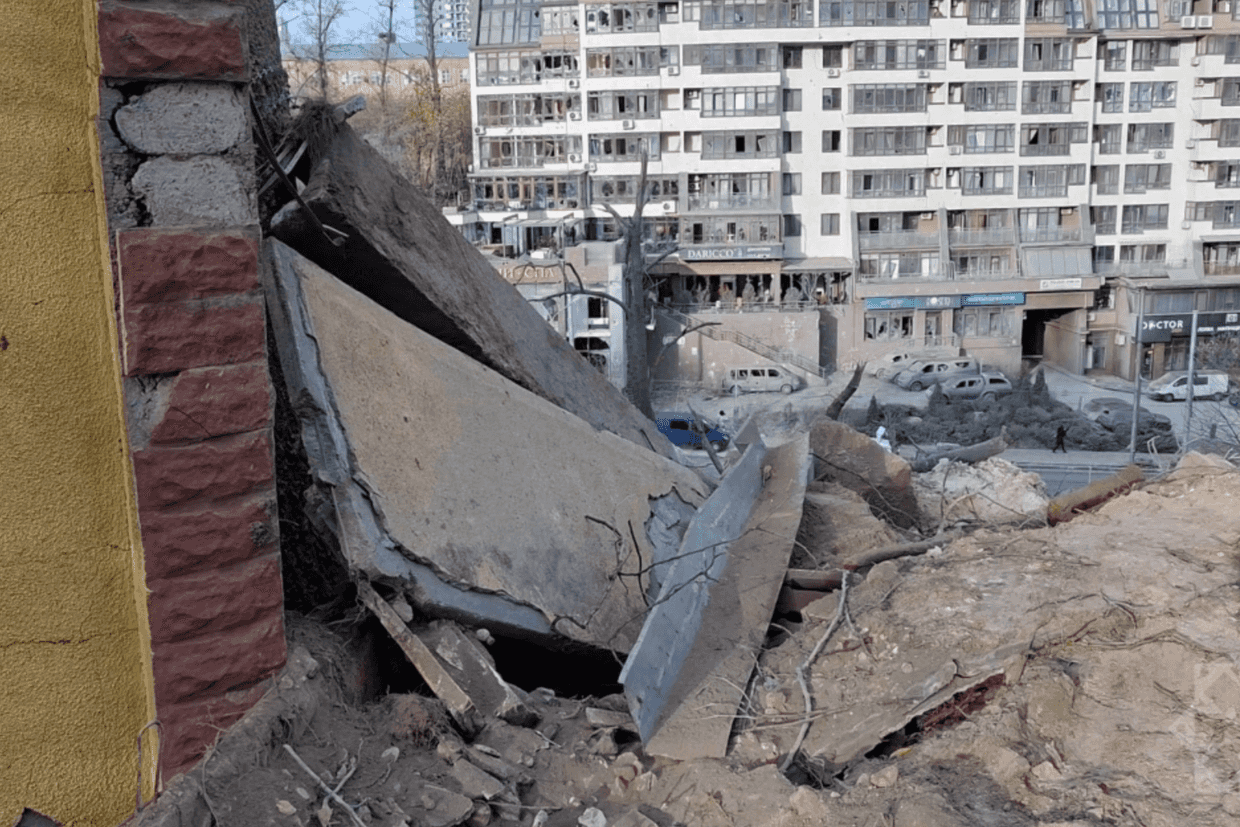
On 9 May, the UK sanctioned a state-owned Azerbaijani tanker as part of efforts to block Russia’s oil trading shadow fleet. That same day, the UK also sanctioned five Azerbaijani nationals allegedly linked to a Singapore and UAE-based oil trading company also working to support Russia’s energy sector.
The sanctions were announced as Moscow commemorated the 80th anniversary of the Soviet Union’s defeat over Nazi Germany, a holiday celebrated every 9 May that has become a showcase of Russia’s military prowess.
A UK press release published that day highlighted that up to 100 oil tankers, responsible for carrying more than $24 billion worth of cargo since the start of 2024, would be sanctioned.
‘The shadow fleet operation, masterminded by [Russian President Vladimir] Putin’s cronies, is not just bankrolling the Kremlin’s illegal war in Ukraine — the fleet’s languishing vessels are known to be damaging critical national infrastructure through reckless seafaring in Europe’, the press release read.
In turn, UK Prime Minister Keir Starmer noted that ‘the threat from Russia to our national security cannot be underestimated, that is why we will do everything in our power to destroy his shadow fleet operation, starve his war machine of oil revenues and protect the subsea infrastructure that we rely on for our everyday lives’.
While the UK did not specify who owned any of the sanctioned ships, an investigation by the Organising Crime and Corruption Reporting Project (OCCRP) found that the ship Zangazur was owned by the Azerbaijan Caspian Shipping Company, according to an announcement posted on the company’s website. Financial statements reviewed by the OCCRP found that the Azerbaijani government owns the entirety of the company’s shares.
Based on shipping data, Zangazur has paid regular visits to the Russian port of Primorsk, west of Saint Petersburg, which features an oil terminal, as well as to the Turkish port of Nemrut, where Azerbaijan’s state-owned STAR oil refinery is located.
As of publication, Zangazur is currently underway from Primorsk awaiting orders.
According to data collected by the advocacy group Global Witness, Azerbaijan’s STAR refinery processed a large amount of Russian crude oil in 2024.
‘The vast majority of STAR products imported by the EU this year have likely been made from Russian oil’, Global Witness stated in a July 2024 report.
Such imports follow a 2022 Memorandum of Understanding (MOU), according to which Azerbaijan would double its supply of gas to the EU, which would allegedly, as European Commission President Ursula Von der Leyen highlighted at the time, ‘compensate for cuts in supplies of Russian gas and contribute significantly to Europe’s security of supply’.
In April 2025, the EU’s top diplomat, Kaja Kallas, made a controversial visit to Azerbaijan during which she thanked Baku for helping the EU ‘diversify its energy supplies and strengthen our own energy security at a time when the world is facing unprecedented challenges’.

In addition to targeting tankers, the UK sanctions package announced on 9 May also included five Azerbaijani citizens — Ahmed Kerimov, Talat Safarov, Anar Madatli, Tahir Garayev, and Etibar Eyyub — accused of trading Russian oil.
All five were linked to a trading entity known as either Coral Energy or 2Rivers Energy, which the UK had already previously sanctioned in December 2024 as part of its efforts to crack down on Russian sanctions avoidance.
That month, the UK enacted an assets freeze and transport sanctions on the company, stating that 2Rivers DMCC ‘is or has been involved in obtaining a benefit from or supporting the government of Russia by carrying on business in a sector of strategic significance to the government of Russia, namely the Russian energy sector’.
Previously, in October 2024, the company, as Coral Energy, released a statement through PR Newswire claiming that it had begun ‘winding down all business involving Russian-origin suppliers in 2022’.
Responding to a Le Monde article claiming otherwise, Coral Energy said that it had made a ‘clear and documented exit from the Russian market, which included terminating all Russian-sourced contracts and asset disposals associated with Russian trading. Additionally, any insinuations of hidden or deceptive corporate structures are wholly misleading’.
The press release also claimed that two of the individuals sanctioned by the UK on 9 May 2025 — Etibar Eyyub and Tahir Garayev — had parted ways with Coral Energy.
‘Following their departures, Coral has had no business association with either individual, a fact that has been made publicly available’, the company’s October 2024 press release read.











